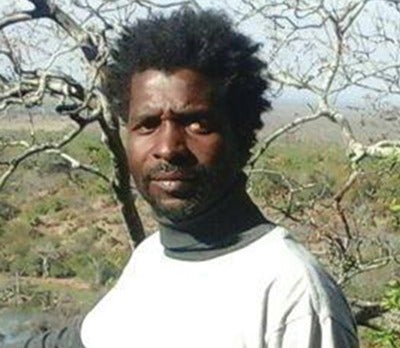Source: ED, Mthuli should be restrained – NewsDay Zimbabwe
THE COVID-19 pandemic is causing more than a medical problem across the world. Economies across the globe have caught the cold, some more than others and soon, a co-ordinated multilateral solution may need to be found as COVID-19 seems a worse threat than the 2008/9 global recession.
To contain the pandemic that is spreading like wildfire, the World Health Organisation and governments have adopted social distancing, self-isolation and in extreme cases lockdowns.
These measures are in addition to the basic hygiene solution like washing hands for more than 20 seconds with running water, coughing into a flexed elbow or tissue and wearing a face mask.
However, lockdowns have greatly affected economic activity and stock exchanges across the globe have been in a downward spiral, with billions of dollars sometimes wiped out in a single trading session.
The New York Stock Exchange, Dow Jones Exchange, Nasdaq, Nikkei Stock Exchange, Hang Seng, London Stock Exchange, Cadec, FTSE 100 and Africa’s biggest exchange, the Johannesburg Stock Exchange, have all suffered bloodbaths.
Billions have been lost and the outlook for recovery is bleak, unless massive bailouts are dished out again.
Brent crude oil prices have tumbled 66% in less than a month from nearly US$60/barrel to below US$20 as of Monday’s trade.
Other commodities such as gold, platinum and copper have also lost significantly on international markets.
The economy is in a massive slow down — and many economists fear many jobs would be shed. In the United States, a record three million joined the ranks of the unemployed by end of last month.
Governments have decided to intervene and save the economies from a meltdown
They are pumping in big money — billions if not trillions — depending on projections from business and economists.
The worst-hit industry is aviation, where nearly all airlines face the risk of going bust unless they receive bailouts from governments.
Manufacturers and small-to-medium enterprises face the prospect of not reopening after lifting of lockdowns unless they, too, receive massive bailouts. The US congress last month passed a US$2 trillion bailout budget.
The money, besides bailing out big companies and SMEs affected by COVID-19, will also be distributed directly to vulnerable households and unemployment benefit.
Britain, Spain, Italy, Germany and France have also passed budgets running into billions of United States dollars to shore up their economies.
Africa’s most sophisticated economy — South Africa — has suffered a battering on its stock exchange and its currency, the rand, has slid from 14 to the greenback to an all-time high of 20 to the dollar in less than three weeks of trade after calling a national lockdown.
President Cyril Ramaphosa announced a R2 billion bailout fund for SMEs, deferring of taxes, moratorium on bank loans repayment and rental payments for three months as a means to try to stimulate the economy out of the crisis.
Coming home, President Emmerson Mnangagwa declared a three-week lockdown that ends on April 19 ostensibly to contain the spread of COVID-19.
However, the lockdown was announced well after Parliament had gone into recess, leaving the Executive to run the country by decree.
The government has lived to its reputation of running things by decree and has issued no less than 20 statutory instruments to give direction during the lockdown and immediately after.
Among the statutory instruments gazetted are those dealing with public health, minimum wage, raising customs excise on fuel and declaring which sectors are essential services that should operate during the lockdown.
As an afterthought, Finance and Economic Development minister Mthuli Ncube last week released a statement that said Treasury had set aside $500 million financial support for three months to small businesses and vulnerable people affected by the lockdown.
Said Ncube: “Vulnerable groups in our society are the most exposed under this COVID-19 crisis. Accordingly, Treasury has set aside resources to cover one million vulnerable households under a cash transfer programme and payment will commence immediately. The Social Welfare Department will use its usual mechanisms to identify the beneficiaries.”
Ncube further said he was ringfencing the 2% intermediated money transfer tax for social protection and capital development projects and, hence, will ordinarily be channelled towards COVID-19-related mitigatory expenditures.
The minister also issued a circular of March 20, 2020 instructing line ministries to identify areas for cuts and areas for redirecting expenditures.
It goes without saying that the Treasury directives have a significant impact on the 2020 national budget. The bailout figures have to be reflected in the Appropriation Act (Blue Book) as demanded by the Constitution.
Section 305(4)(b) of the Constitution is very clear that Treasury can only incur expenditure as outlined in the Finance and Appropriation Act.
It is, therefore, imperative for Ncube to immediately table a 2020 supplementary budget that reflects the figures he has provided to mitigate against coronavirus effects.
The budget has to be approved by Parliament for it to be constitutional in terms of section 305(5) of the Constitution.
The unbridled and unrestrained use of public funds without parliamentary authorisation should be stopped.
Mnangagwa and Ncube cannot be allowed to abuse the Constitution and later seek condonation, like they did last year for $9 billion that had been borrowed without parliamentary approval.
Parliament should be convened soonest to approve these expenditures.
Paidamoyo Muzulu is a journalist and writes here in his personal capacity.
The post ED, Mthuli should be restrained appeared first on Zimbabwe Situation.
